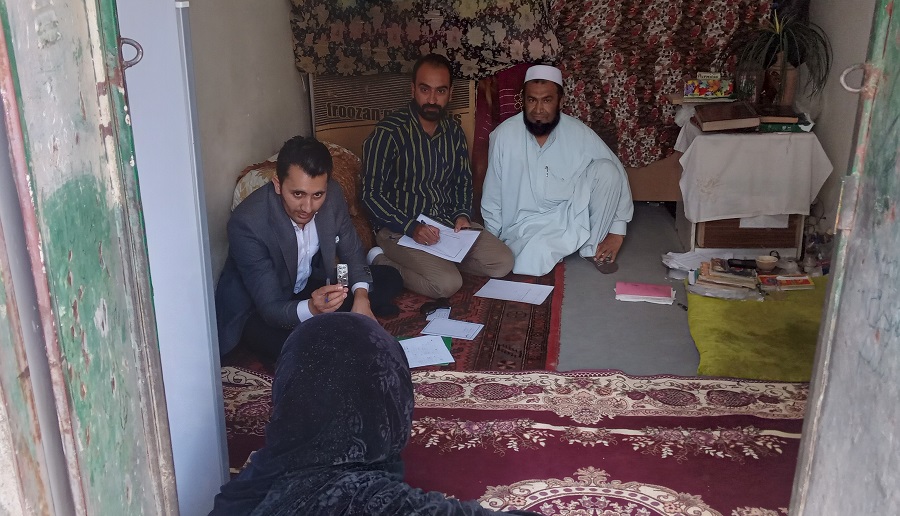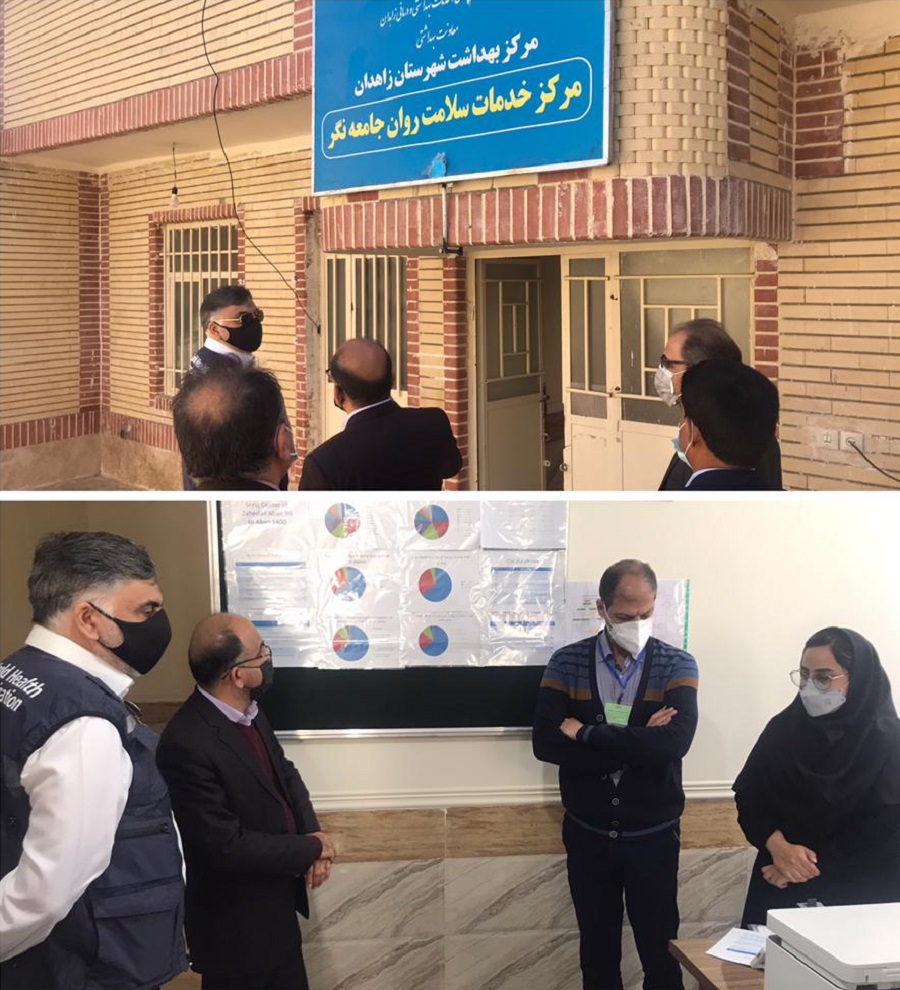 Medical team from Shirabad Community Mental Health Centre visited Zoleykha at home to deliver the therapy
Medical team from Shirabad Community Mental Health Centre visited Zoleykha at home to deliver the therapy
15 August 2023 – A 32-year-old woman of Afghan nationality, Zoleykha lives in Shirabad, an underprivileged neighbourhood in the suburb of Zahedan, the capital city of Sistan and Baluchistan province in southeast of the Islamic Republic of Iran. She is divorced, and her 2 children live with their father.
In early 2022, Zolyekha presented to Shirabad Community Mental Health Centre complaining of insomnia, loss of appetite, apathy and suicidal thoughts, among other issues. She was told that she had severe depression, and that she needed to receive psychiatric care and treatment.
However, she could not afford the medicines, not to mention the other considerations inr going out to visit the health centre to receive therapy. Having recognized her economic hardship and those constricts, the doctors arranged for her to receive therapy at home. They would visit her to hold her therapy sessions and bring the medication.
After 25 home visits by the psychiatrist, Zoleykha is on the path to recovery from depression and her symptoms have subsided. Now, she is helping the family with housework, and her interpersonal relationship, especially with her father and stepmother, has improved.
Zoleykha is just one of the many individuals in that populated neighbourhood who have received mental health support and care in the past 2 years, since the launch of Shirabad Community Mental Health Centre, also known as Seraj centre.
According to the results of the latest national mental health survey in 2013, the prevalence of mental disorders in Sistan and Baluchistan was 31%, quite above the national average of 23%. This high prevalence could be partly explained by the larger number of underprivileged people living in this province, with some areas, including Shirabad, comprising poor refugee or immigrant communities.
The COVID-19 pandemic exacebated the situation, with its mental health effects as a result of increased social isolation, business closures, financial problems, the loss of family members and the resulting grief and sadness.
Increased prevalence of mental health conditions, with implications for workforce productivity and the quality of life of the affected individuals, highlights the need for specialized care and social support for patients with mental health conditions. In addition, social stigma and inadequate access to standard mental health services, as well as the economic and financial burden of specialized treatments on families and society, especially in disadvantaged areas, and the follow-up of mental health patients and their families after hospital discharge requires special attention and investment.
WHO Representative in the Islamic Republic of Iran Dr Syed Jaffar Hussain visited Zahedan in February 2022 to discuss with provincial health officials ways of improving mental health services to vulnerable populations in the province. It was agreed that, with the financial support from WHO and the Ministry of Interior, a mental health team comprising psychiatrists, physicians, psychologists and social workers scale up providing a set of free-of-charge mental health services at Shirabad Community Mental Health Centre, for a population of more than 80 000 people.
In this joint project, after the approval of the Mental Health Office of the Ministry of Health and Medical Education, a mental health service package was developed. A total of 13 120 individuals 5 years and older residing in Shirabad neighbourhood were screened, of whom 1032 had a positive initial screening for mental health disorders. Overall, 371 of the identified cases were confirmed by the team psychiatrist as having mental health disorders. Moreover, 2745 individuals received psychological counselling services provided by psychologists.
In addition to mental health services, home visits, post-discharge telephone follow-up, patient and family education sessions, and social support for patients referred from psychiatric hospitals and comprehensive health service centres are being provided by social workers at this centre.
 WHO Representative Dr Hussain visiting Shirabad Community Mental Health Centre in the suburb of Zahedan
WHO Representative Dr Hussain visiting Shirabad Community Mental Health Centre in the suburb of Zahedan


